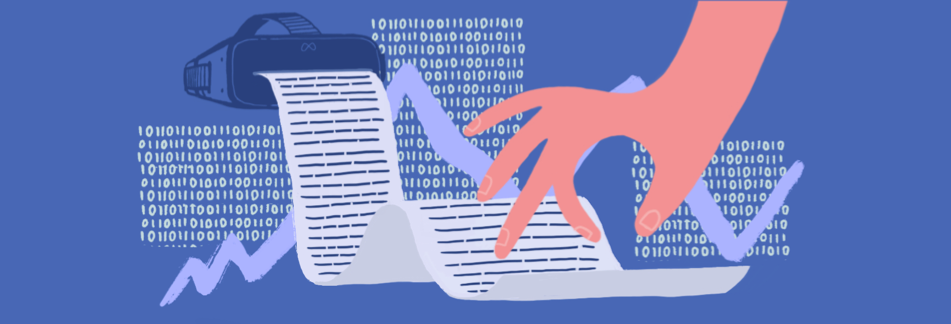The recent announcement from Facebook regarding its new parent company, Meta, left many of us perplexed by the bizarre and somewhat abrupt change in name. However, this change in name was anything but superficial, with Mark Zuckerberg taking to Facebook Live to profess his vision for a digital future, which he is referring to as ‘the Metaverse’. Analyst Victoria Petrock describes the Metaverse as a ‘doppelganger universe’, allowing you to live a ‘virtual life the same way you’re living your physical life’. Whilst this sounds attractive to some, it poses the question: if Meta is hosting your new reality, is this the end of privacy as we know it?
It has only been three years since whistle-blower, Christopher Wylie, exposed Facebook’s involvement in the 2018 Cambridge Analytica scandal, showing us the power of data and shattering the illusion of free will. It highlighted the importance of privacy, not only because it has the power to expose our embarrassing or indecorous online antics, but because it is the only thing that protects us from being exploited by those who seek to take advantage of emerging technologies.
Carole Cadwalladr, the journalist responsible for breaking the story, claims that ‘it’s inevitable that foreign actors and rich individuals will try to manipulate social media platforms’, and that ‘behind closed doors, beyond the reach of lawmakers, we won’t know how’. Indeed, while we may not know what goes on behind closed doors, the Metaverse is certainly providing us with a glimpse into how these individuals and organisations intend to extend their reach.
This time around, the data collected traverses the digital into the physical, with these technologies able to capture biometric data such as retina scans, fingerprints and handprints, face geometry, and voiceprints – just to name a few. While this data could further corporate efforts to predict consumer behaviours, similarly to the way our data is currently used, the use of virtual reality technologies will make consumer anonymity from targeted ads almost completely impossible. Since individual behavioural characteristics are, by definition, unique to an individual, producing data that is increasingly more attuned to these individual characteristics means this data is increasingly more valuable.
Even if we could guarantee Facebook are truly changing their conduct for the better, with Meta’s almost omniscient presence, the data collected could be of enormous value to hackers, putting the user in danger of a personal, identity-based attacks.
Whilst this is certainly new and ground-breaking technology, the dangers associated with past and present technologies still apply. Back in 2018, researchers at Digital Interruption found ‘a high-risk vulnerability in the SinVR application that leaked customer information’. If Meta expects to build an online space through collaborations with independent developers, then there is no clear indication of the preventative measures which will prohibit sloppy coding blunders. Unlike traditional passwords, biometric data cannot be changed, leaving you permanently exposed to breaches in devices or accounts.
Meta surely has a clear vision for the future, but with a reputation for being disingenuous, coupled with the impossibility of complete protection from malicious and insecure apps, it begs the question: is this a technology that is going to help us, or exploit us? Perhaps it is inevitable that eventually we will be living a virtual existence far superior to the world in which we currently live, however, until these concerns are addressed – if it ain’t broke, don’t fix it.



